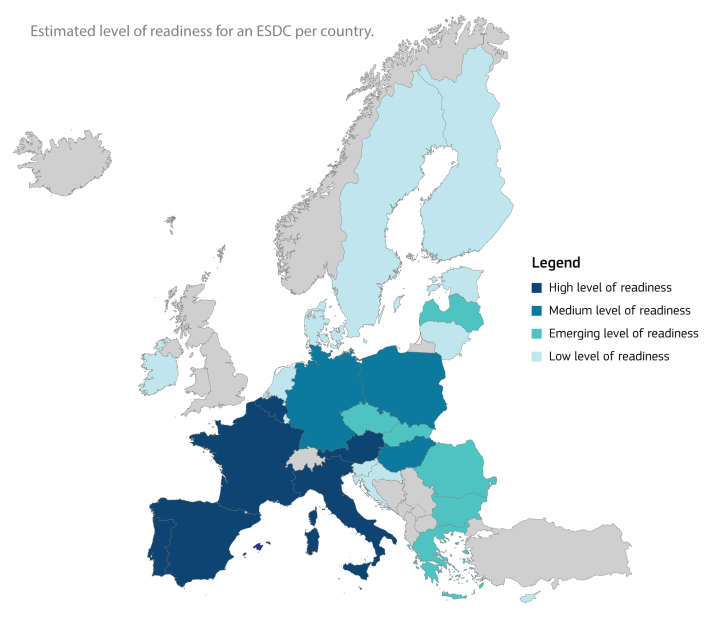
A JRC feasibility study on the European Digital Skills Certificate (EDSC) revealed that there is limited readiness for an EDSC across Member States, and substantial efforts would be needed to implement it.
The European Digital Skills Certificate is an action proposed in the context of the Digital Education Action Plan (2021-2027) to support digital skills recognition across Europe. The study has been key to assess thoroughly its feasibility, and to explore avenues to support the achievement of the EU target of ensuring that 80% of the adult population has basic digital skills by 2030.
This research work included desk research and an extensive participatory process (interviews, working groups, events). The involvement of a wide range of stakeholders across EU Member States – certification service providers, policymakers and public authorities, education and training providers – was essential to understand the complex certification landscape and the different building blocks needed to launch an EDSC.
JRC identified 27 existing certification schemes across the EU that certify digital skills, with varying levels of geographical and language coverage. Stakeholders recognised the potential benefits of an EDSC, envisaged as a Quality Label for certification providers, however, showed a different level of readiness for its adoption across Member States.
From the stakeholders’ consultation, it emerged:
- There’s an insufficient demand by private and public employers and education and training institutions;
- Significant efforts are needed for its implementation and ongoing operational costs;
- Challenges abound for setting up the governance structure, including key functions such as establishing the technical requirements for an EDSC, and the accreditation requirements for certification providers, and evaluation and reporting;
- At this stage, the costs of putting in place an EDSC Quality label would outweigh its benefits.
The analysis found evidence of digital skills policies supporting Digital Competence Framework for Citizens (DigComp) in 22 Member States.
The study recommends to focus on the extension of DigComp with learning outcomes. This will support greater transparency and further alignment to the DigComp framework of approaches to digital skills education, training, assessment, and certification.
Background
The study has been jointly carried out by the Joint Research Centre and the Commission’s Directorate-General for Employment, Social Affairs and Inclusion (DG EMPL).
The JRC is currently revising DigComp to develop learning outcomes and supporting material for applications of the framework in a variety of contexts and for a range of purposes.
Related links
European Digital Skills Certificate (EDSC) Feasibility Study
Digital Education Action Plan, Action 9 European Digital Skills Certificate
Digital Competence Framework for Citizens (DigComp)
Details
- Publication date
- 22 November 2024
- Author
- Joint Research Centre
- JRC portfolios





